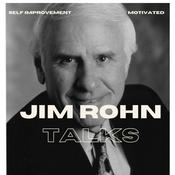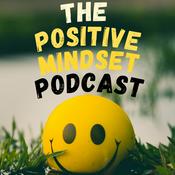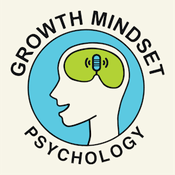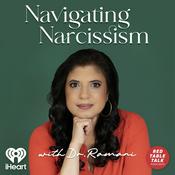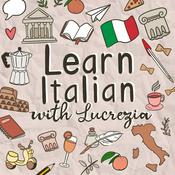Reflective Parenting by Curious Neuron
Cindy Hovington, Ph.D.
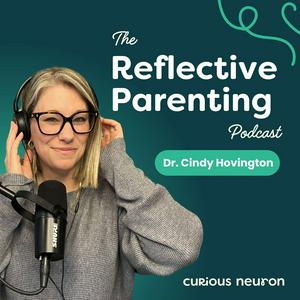
Latest episode
252 episodes
You, Your Husband, and His Mother: Untangling a Tricky Family Dynamic with Dr. Tracy Dalgleish
2025/12/16 | 50 mins.Send us a text
Family dynamics can feel especially intense around the holidays and one of the most challenging patterns many parents face is the triangle between you, your partner, and your mother-in-law. In today’s episode, Dr. Tracy Dalgleish returns to the podcast to help us make sense of this dynamic with compassion, clarity, and evidence-based tools.
In this conversation, I sit down with Dr. Tracy Dalgleish, psychologist and author of You, Your Husband & His Mother, to unpack why the mother-in-law / daughter-in-law dynamic is so emotionally charged and how it quietly strains couples.
We talk about boundaries, guilt, generational differences, cultural expectations, and what couples can do to stop feeling divided and start acting as a solid team.
In this episode, we cover:
Why this family dynamic is uniquely triggering
How boundaries get misunderstood and what actually works
What to do when your partner shuts down or minimizes the issue
How to recover after a difficult family gathering
Why connection comes before problem-solving
Join me for a free Webinar on December 17th at 8pm (and get the replay!):
https://tremendous-hustler-7333.kit.com/ce962dd904
You can purchase Tracy's book, You, Your Husband and Your Mother in Law, in the US or in Canada. You can also get her first book (which I also highly recommend called "I didn't Sign up for This" in the US or Canada.
Listen to my previous conversation with Tracy below:
https://podcast
Support the show
Learn more with Curious Neuron:
Snapping at your kid? Get this FREE training to learn how to catch your nervous system in overdrive BEFORE you snap!
https://tremendous-hustler-7333.kit.com/84371dc0b2
Read to become a Reflective Parent? Purchase our course below:
https://curiousneuron.com/reflective-parent-club/
Email: [email protected]- Send us a text
If you’ve ever ended a night thinking, “Why did I snap again?” — this episode is for you.
Today, we’re diving into what’s really happening in your brain and body when your child pushes your buttons. Because those intense reactions? They aren’t proof that you’re a bad parent. They’re signals from a nervous system in overdrive — and once you can recognize those signals, you can change the way you respond.
We’ll talk about:
Why your child’s emotions can feel like a threat to your brain
The science behind emotional flooding (in both you and your child)
How stress, exhaustion, and self-expectations reduce your window of tolerance
What “repair” looks like — and why it matters more than getting it perfect
You’ll walk away with practical reflection questions and simple shifts that help you move from snapping to connecting — even on the hard days.
Join next week's FREE webinar (or get the replay):
https://tremendous-hustler-7333.kit.com/ce962dd904
Read the full article:
https://pubmed.ncbi.nlm.nih.gov/24392687/
Share your thoughts and questions with me:
https://form.typeform.com/to/Dadaa8ns
Read a blog post about this:
https://curiousneuron.com/2025/12/03/why-you-still-snap-even-when-youve-done-the-work/
Support the show
Learn more with Curious Neuron:
Snapping at your kid? Get this FREE training to learn how to catch your nervous system in overdrive BEFORE you snap!
https://tremendous-hustler-7333.kit.com/84371dc0b2
Read to become a Reflective Parent? Purchase our course below:
https://curiousneuron.com/reflective-parent-club/
Email: [email protected] - Send us a text
Hi Reflective Parents! This week, we are talking about something I keep hearing from parents which is snapping at our kids even when we are working on ourselves by learning about parenting or even going to therapy.
You are not failing your child. You are still learning many skills that lead to you becoming more aware of your own state before you snap.
In this episode, I walk you through 3 steps that might help you catch yourself the next time you snap (notice I didn't say BEFORE you snap....that isn't always realistic).
I would love to find a way to communicate better with all of you. Share your story that is related to this episode in the link below OR ask a question to help me create a future podcast episode.
https://form.typeform.com/to/Dadaa8ns
Support the show
Learn more with Curious Neuron:
Snapping at your kid? Get this FREE training to learn how to catch your nervous system in overdrive BEFORE you snap!
https://tremendous-hustler-7333.kit.com/84371dc0b2
Read to become a Reflective Parent? Purchase our course below:
https://curiousneuron.com/reflective-parent-club/
Email: [email protected] - Send us a text
If you keep snapping, shutting down, or feeling guilty, even though you “know” what to do... this episode will finally make it make sense.
After speaking with more than 200 parents, I’ve noticed the same pattern:
We are drowning in parenting advice, but no one is teaching parents the one skill that actually changes everything, how your nervous system works.
In this episode, I talk about:
Why you still lose patience even after therapy, courses, and all the scripts
What’s really happening in your body during those moments you “flip”
Why you’re not a bad parent — you’re simply depleted
How viewing your child through a leadership lens instantly changes your reactions
The real first step to building a calmer, more connected home
You don’t need more advice.
You need emotional bandwidth — and today, we talk about how to build it.
New! Becoming a Reflective Parent course is now available!!!
Learn the 10 skills that help you rewire patterns, regulate emotions, and understand your nervous system. Get it today!
https://curiousneuron.com/reflective-parent-club/
Support the show
Learn more with Curious Neuron:
Snapping at your kid? Get this FREE training to learn how to catch your nervous system in overdrive BEFORE you snap!
https://tremendous-hustler-7333.kit.com/84371dc0b2
Read to become a Reflective Parent? Purchase our course below:
https://curiousneuron.com/reflective-parent-club/
Email: [email protected] - Send us a text
Today on the Reflective Parenting Podcast, I’m sitting down with Dr. Brendan Kwiatkowski-Hartman to talk about something many parents quietly wonder about:
Why do boys sometimes pull away emotionally and how can we support them without pushing too hard?
Brendan is a researcher who has spent years studying boys, masculinity, and emotional expression. What he learned in his PhD work is both reassuring and eye-opening: boys do feel deeply, even when it looks like they’ve shut down. And the reasons they hold back are often more complex and tender than we realize.
This is a grounded, thoughtful conversation, especially meaningful for dads who want to connect more with their sons but aren’t always sure where to start.
In this episode, we cover:
The two stages when boys start hiding emotions
Why boys say “I’m fine” even when they’re struggling
How to become an emotional safe space for your son
What makes it hard for dads to be vulnerable
Gentle ways to start emotional conversations with boys
The RULER model for building emotional intelligence
How to support boys who feel anxious or withdrawn
Why parents’ own emotional work matters
Practical scripts and small daily moments that build trust
Read our blog post about this topic:
https://curiousneuron.com/2025/11/15/boys-emotional-needs-study/
Learn more from Brendan below:
@re.masculine
https://remasculine.com
https://pubmed.ncbi.nlm.nih.gov/36176325/
https://pmc.ncbi.nlm.nih.gov/articles/PMC9513388/
Support the show
Learn more with Curious Neuron:
Snapping at your kid? Get this FREE training to learn how to catch your nervous system in overdrive BEFORE you snap!
https://tremendous-hustler-7333.kit.com/84371dc0b2
Read to become a Reflective Parent? Purchase our course below:
https://curiousneuron.com/reflective-parent-club/
Email: [email protected]
More Education podcasts
Trending Education podcasts
About Reflective Parenting by Curious Neuron
Parents don’t snap for one reason — they snap because stress builds faster than awareness.The Reflective Parenting Podcast, hosted by neuroscientist and mom of three Dr. Cindy Hovington, helps parents understand what’s happening inside them before they snap and why recognizing it sooner is the key to change.Through personal reflections and conversations with clinicians and experts, the podcast explores why parenting feels so intense, why insight often disappears under stress, and what it means to become a reflective parent.A reflective parent isn’t perfect or calm all the time. They notice sooner, recover faster, and slowly build more trust in how they show up — even on hard days.This podcast is your invitation to pause, reflect, and feel less alone.New episodes weekly.Join the private group on Facebook:www.facebook.com/groups/reflectiveparentingpodcast/Watch our FREE training for parents to understand why you snap!https://tremendous-hustler-7333.kit.com/84371dc0b2Purchase our course to Become a Reflective Parent!https://curiousneuron.com/reflective-parent-club/Follow us on Instagram @curious_neuron or Facebook @curiousneuron
Podcast websiteListen to Reflective Parenting by Curious Neuron, Trying Not to Care and many other podcasts from around the world with the radio.net app

Get the free radio.net app
- Stations and podcasts to bookmark
- Stream via Wi-Fi or Bluetooth
- Supports Carplay & Android Auto
- Many other app features
Get the free radio.net app
- Stations and podcasts to bookmark
- Stream via Wi-Fi or Bluetooth
- Supports Carplay & Android Auto
- Many other app features


Reflective Parenting by Curious Neuron
Scan code,
download the app,
start listening.
download the app,
start listening.








